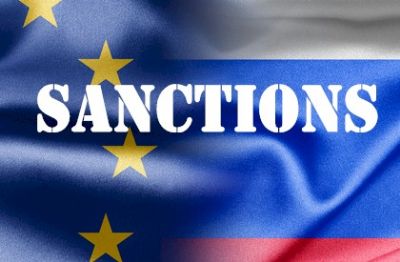 Germany will back an extension of the European Union’s punitive sanctions against Russia at an upcoming summit of EU leaders, Chancellor Angela Merkel told lawmakers on Wednesday.
Germany will back an extension of the European Union’s punitive sanctions against Russia at an upcoming summit of EU leaders, Chancellor Angela Merkel told lawmakers on Wednesday.
Russia’s detention of three Ukrainian military vessels and their crews in the Kerch Strait – a body of water shared between the two countries – has led to widespread calls in Europe and the U.S. for sanctions against Moscow to be toughened.
The European Union is studying ways to help bolster the economy in strife-torn eastern Ukraine, the EU’s top diplomat said Monday, amid tensions with Russia over the naval confrontation in the Black Sea
Ukraine has been seeking help from its international partners at the EU and NATO since Russian border guards fired on three Ukrainian navy vessels in the Black Sea on Nov. 25. The crews were captured and the ships seized.
But the 28-nation bloc is unlikely to impose any fresh sanctions on Russia over its actions in the annexed Crimea region and the Sea of Azov, which is an important part of Ukraine’s economy.
“For us what counts the most is the practical support we can give,” EU foreign policy chief Federica Mogherini told reporters in Brussels after chairing a meeting of European foreign ministers, including talks with Ukrainian Foreign Minister Pavlo Klimkin.
Mogherini said the EU is looking into what measures it can take to help support the region around the Sea of Azov, where the busy trading port of Mariupol is situated.
She said the EU is looking at projects it can finance and European Investment Bank assistance, but she didn’t go into detail.
Mogherini will hold talks with the former Soviet republic’s prime minister on EU-Ukraine relations in Brussels on Dec. 17.
Klimkin said he had asked for four things: help to secure release of the captured sailors, pressure to ensure freedom of navigation in the region’s waters with perhaps the use of observers, the addition of more Russians to the EU’s sanctions list and possible retaliatory measures against Russian port facilities, and the provision of infrastructure, water and energy projects to boost the economy.
While no new sanctions against Russia are likely, EU leaders are expected this week to prolong existing economic sanctions against Russia over its annexation of Crimea and destabilization of Ukraine.
The extension of those sanctions is tied to progress on implementing the Minsk peace agreement meant to end the conflict in eastern Ukraine.
“As there is no progress in putting into effect the Minsk agreement, there’s no need to modify our policy,” Belgian Foreign Minister Didier Reynders said.
Separately, the EU added nine more people to another sanctions list over “illegal” elections in eastern Ukraine last month.
The foreign ministers imposed asset freezes and travel bans on the nine local government and election officials in Donetsk and Luhansk.
It brings to 164 the total number of people under sanctions for “actions undermining or threatening the territorial integrity, sovereignty and independence of Ukraine.”
Forty-four “entities”, like companies or organizations, are also on the list.
REUTERS/AP

Leave a Reply
You must be logged in to post a comment.